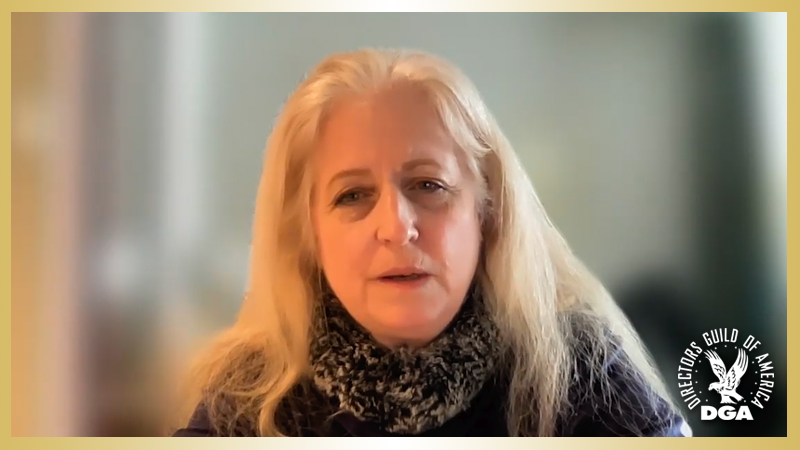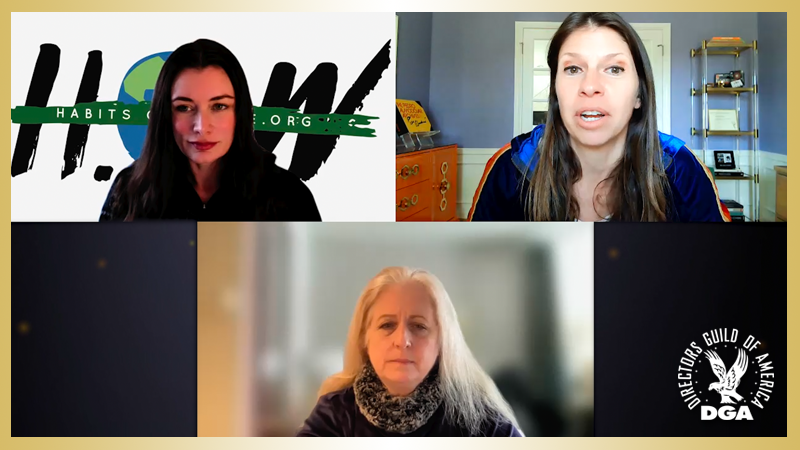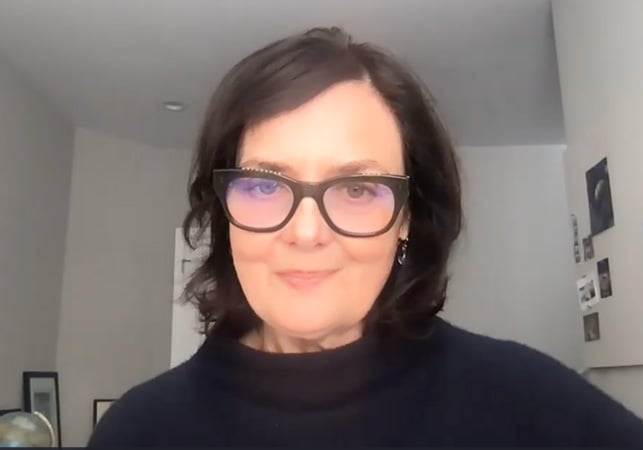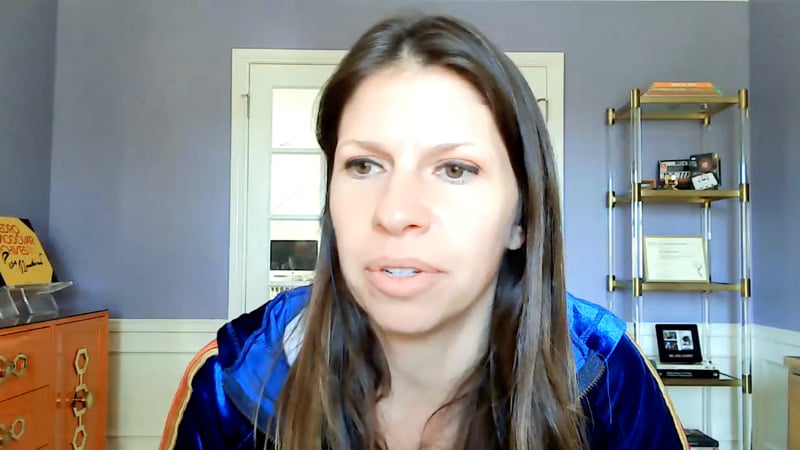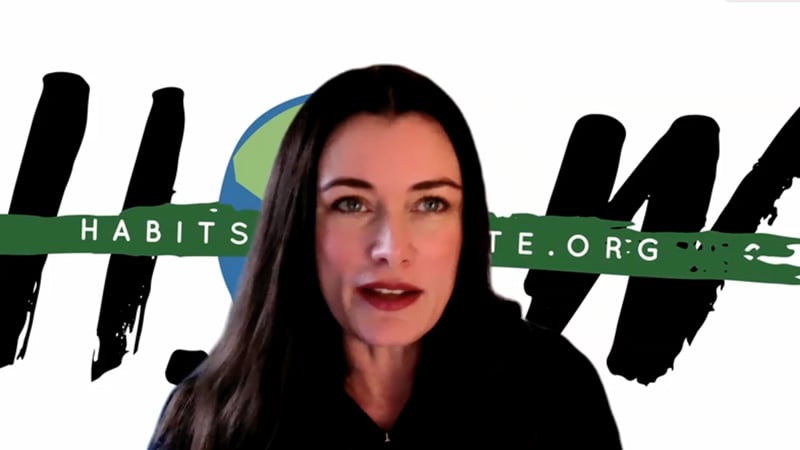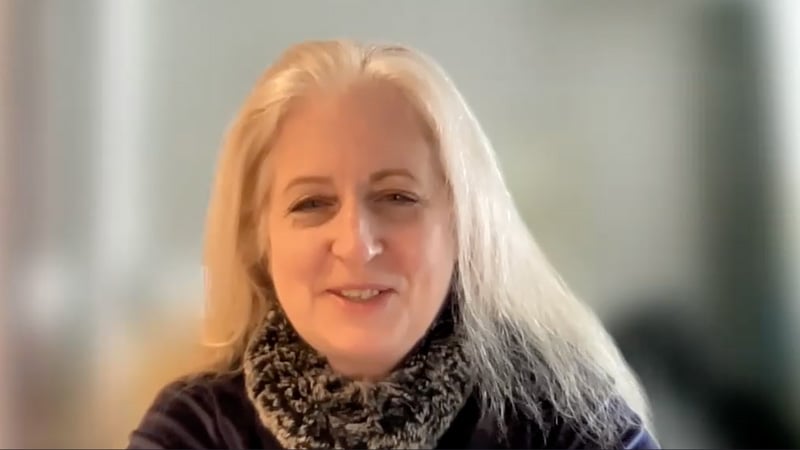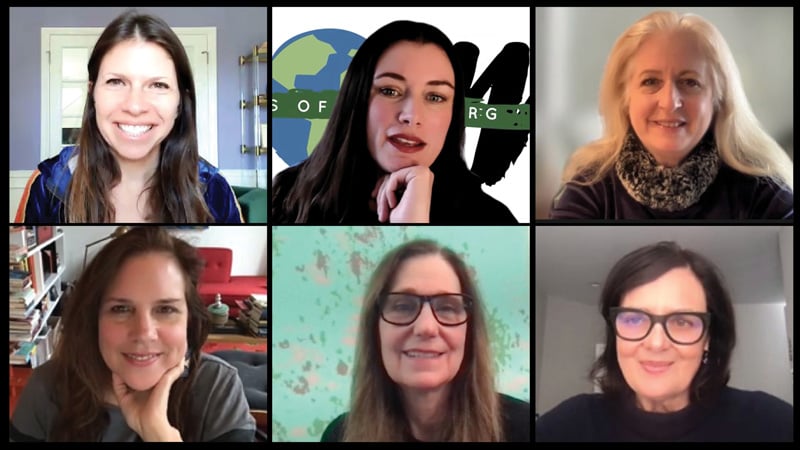On January 21, the new DGA Sustainable Future Committee hosted its second event, Paperless and Plastic Free: Strategies for Eliminating Waste on Set for a Sustainable Future. The informational panel discussion featured Director Kat Coiro (Marry Me) and UPM Kati Johnston (East New York) in a conversation moderated by Director/Sustainable Future Committee member Valerie Weiss (Outer Banks) that explored what Directors and DGA teams can do to reduce on-set waste and model leadership on set.
The event kicked off with a welcome and introductions by UPM/Sustainable Future Committee member Diana Pokorny, who outlined the issues the panel hoped to address, first detailing the scope of the problem. “With less than seven years to reduce our carbon emissions by 50% to avoid irreversible climate change we can already see that climate change is impacting our productions,” said Pokorny “I was very surprised to find out that the global entertainment industry has a massive carbon footprint producing millions of metric tons of CO2 a year. But this situation is far from hopeless. We are in a leadership position as Directors, UPM, ADs and Stage Managers, to affect change on set. We can mandate, model, encourage, promote, and use whatever tactics needed to help address production policies that are more sustainable.”
Led by Weiss, the panelists covered a myriad of topics including ways to eliminate plastic, on set and on screen; how apps can make paperless productions easier; and how productions implement eco-friendly practices on set while taking the constraints of budget and schedules into account.
Coiro addressed the “all or nothing mindset” that prevents some from doing anything because they think of the situation as far too daunting. “It’s really important that we approach this entire problem from a positive place,” said Coiro. “Our industry has great reach and with that reach comes great responsibility. Sociology and psychology experts agree that film and television subliminally dictate what is and isn’t acceptable in our collective society. Often this idea of being a perfect environmentalist stops people from being conscious of their choices. I think for our audience today, we want to impart doable actionable items. No matter what the size or scope of your project is, you can leave today with some tools that will really get us somewhere. This isn’t about listing insurmountable odds it’s about offering solutions.”
Johnston tackled the issue from the production planning aspect, such as budgeting for a dumpster where waste can be recycled or composted. “It’s kind of hard when you start out a project and the budget you’re given doesn’t include enough for that dumpster to begin with so you have to you know find ways of arguing for it,” said Johnston. “I recommend looking at the Green Production Guide. I go back to it as a sort of refresher every couple of weeks myself to see what are we doing and what am I missing. If your studio has a sustainability department and they’re an advocate for you, please use them! The other important thing is to use your union members. Anybody on your staff who is green and proactive in making the set sustainable is going to be helpful to you and they can actually go back to their locals and say, 'We need help with this.'”
Weiss summed up the ambitions of not only the day, but for the ongoing mission of the Sustainable Future Committee, saying, “Our big goal is to be aligned with the United Nations to reduce our carbon footprint by 50% by 2030. What we’d really love is that all DGA members be educated about these goals and how we can get there and to lead the charge on our sets. We would love 2nd ADs to keep the studio sustainability guides on hand and share them and talk about them. Creating this culture where this is just as important as safety and everything else that we value as members of the DGA would go a long way to reaching our goals of saving this planet.”
See video from this event in the gallery below.
ABOUT THE PANELISTS:
|
|
|
|
 Director Valerie Weiss (moderator) Director Valerie Weiss (moderator)Weiss’s directorial credits include the feature films, Mixtape, The Archer, A Light Beneath Their Feet and Losing Control; the movie for television, An American Girl Story: Maryellen 1955 – Extraordinary Christmas; and episodes of Star Trek: Strange New Worlds, Echoes, Monarch, Outer Banks, Why Women Kill, Suits and Impulse. A DGA member since 2016, Weiss serves as the Director Category Representative of the Women’s Steering Com-mittee and on the Sustainable Future Committee. |
Resource Links from this Panel:
- Green Production Guide
- Green Vendor Guide
- Scriptation Workshop with Moderator Valerie Weiss
- Lights, Camera, Plastic
- How to Reduce Paper Use
- Sustainable On-Screen Art
- Unpackaging Food Waste
About the Committee:
Created in January 2022, the Sustainable Future Committee is comprised of members across the Guild categories and is chaired by Directors Todd Holland and Lydia Dean Pilcher and UPM Mari Jo Winkler. The Committee is focused on reducing carbon emissions and waste in film and television production to mitigate the adverse impacts on the environment and the areas where our members work and live. The Sustainable Future Committee has developed recommendations on how we can do our part to help move the industry in a more ecologically conscious.
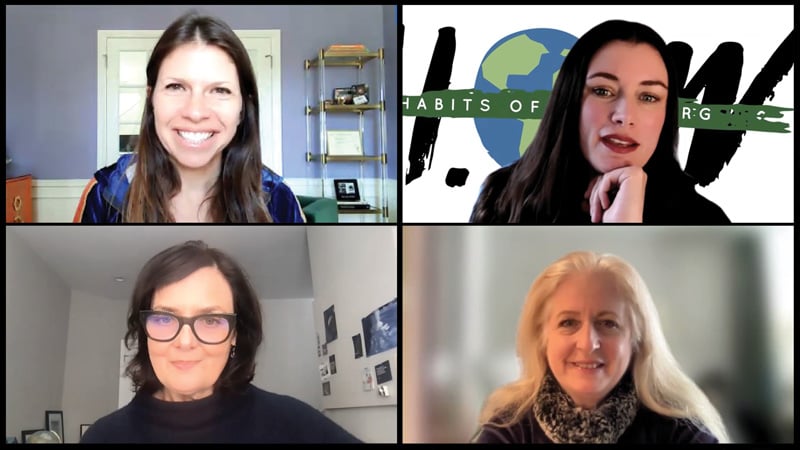
 Director Kat Coiro
Director Kat Coiro UPM Kati Johnston
UPM Kati Johnston